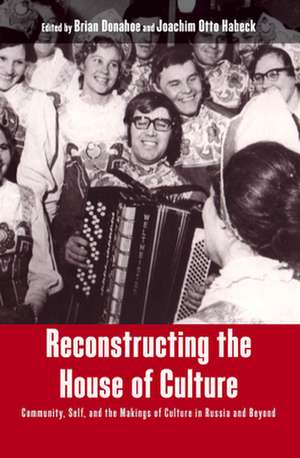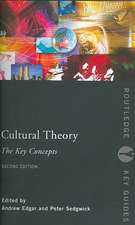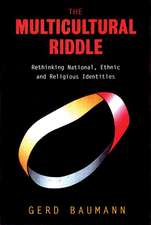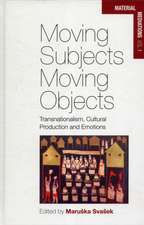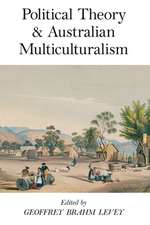Reconstructing the House of Culture
Editat de Brian Donohoe, Joachim Otto Habecken Limba Engleză Hardback – 31 oct 2011
Preț: 807.61 lei
Preț vechi: 1048.83 lei
-23% Nou
Puncte Express: 1211
Preț estimativ în valută:
154.54€ • 162.09$ • 128.65£
154.54€ • 162.09$ • 128.65£
Carte tipărită la comandă
Livrare economică 02-16 aprilie
Preluare comenzi: 021 569.72.76
Specificații
ISBN-13: 9780857452757
ISBN-10: 0857452754
Pagini: 348
Dimensiuni: 150 x 22 x 210 mm
Greutate: 0.64 kg
Editura: BERGHAHN BOOKS INC
ISBN-10: 0857452754
Pagini: 348
Dimensiuni: 150 x 22 x 210 mm
Greutate: 0.64 kg
Editura: BERGHAHN BOOKS INC
Notă biografică
Brian Donahoe (Ph.D. Indiana University, 2004) is an independent researcher living in Kyzyl, Republic of Tyva. From 2004-2010 he was post-doctoral research fellow at the Max Planck Institute for Social Anthropology in Halle, Germany. His research interests include the interaction between mobility and land tenure among nomadic (or formerly nomadic) groups under different administrative regimes; institutional analysis; and the dynamics of constructing, maintaining, and performing ethnic identity and indigeneity through the idiom of "culture." Joachim Otto Habeck (Ph.D. Cambridge University, 2004) is coordinator of the Siberian Studies Centre at the Max Planck Institute for Social Anthropology in Halle, Germany. Having earlier pursued research on mobile pastoralists in the Russian North, he is now investigating cultural and ethno-cultural events and organizations, popular notions of culture, and gendered spaces of work and leisure. Employing the concept of lifestyle, he examines how rural and urban inhabitants of Siberia see themselves and want to be seen by others.
Cuprins
List of Illustrations Editors' Preface A Note on Transliteration Introduction: Cultivation, Collective, and the Self Joachim Otto Habeck Part I: The Siberian House of Culture in Comparative Perspective Chapter 1. From Collective Enthusiasm to Individual Self-Realization: History of and Experience in the House of Culture, Anadyr' (Chukotka) Virginie Vate and Galina Diatchkova Chapter 2. "Thank You for Being": Neighborhood, Ethno-Culture, and Social Recognition in the House of Culture Joachim Otto Habeck Chapter 3. Pokazukha in the House of Culture: The Pattern of Behavior in Kurumkan, Eastern Buriatiia Istvan Santha and Tatiana Safonova Chapter 4. Three Houses of Culture in Kosh-Agach: Accounting for Culture Work in a Changing Political Setting Agnieszka Halemba Chapter 5. In the Face of Adversity: Shagonar's Culture Workers Bear the Torch of Culture Brian Donahoe Chapter 6. Constellations of Culture Work in Present-Day Siberia Joachim Otto Habeck, Brian Donahoe, and Siegfried Gruber Part II: Expanding the Stage: The House of Culture in Broader Historical and Geographical Context Chapter 7. The Emergence of the Soviet Houses of Culture in Kyrgyzstan Ali Igmen Chapter 8. Palana's House of Koryak Culture Alexander D. King Chapter 9. Transformations of the House of Culture in Civil Society: A Case Study of Rural Women's Culture Projects in Latvia Aivita Putnina Chapter 10. Heritage House-Guarding as Sustainable Development: Community Arts and Architectures within a World Cultural Net(work) Nadezhda Savova Conclusion: Recognizing Soviet Culture Bruce Grant Appendix I: Research Design and Methodology of the Comparative Research Project "The Social Significance of the House of Culture" B. Donahoe, J.O. Habeck, A. Halemba, K. Istomin, I. Santha, and V. Vate Appendix II: Survey Form and Instructions Appendix III: Questionnaire 1 (Q1) and Instructions Appendix IV: Questionnaire 2 (Q2) and Instructions Appendix V: Fieldwork Checklist Notes on Contributors Index
